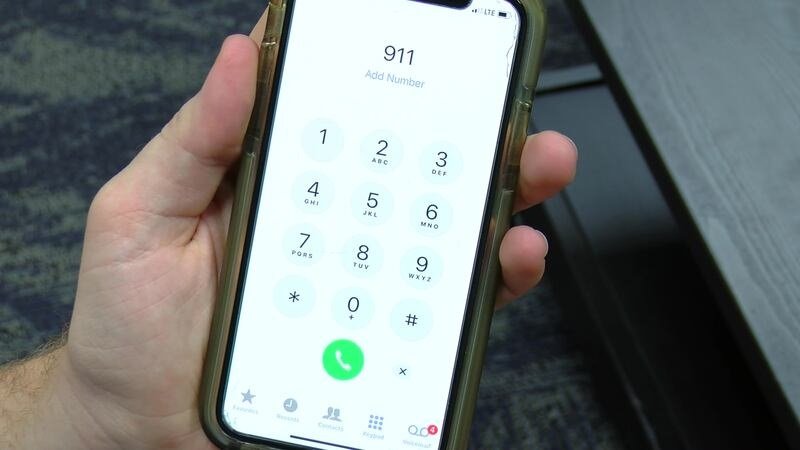In emergency situations, quick action can make the difference between life and death. Knowing when to call 911 is crucial for ensuring timely and appropriate assistance. This article explores seven critical reasons why you should immediately call 911, highlighting the importance of swift action in various scenarios.
- Medical Emergencies
Medical emergencies are one of the most common reasons to call 911. Immediate medical intervention can save lives and prevent further complications.
Signs to Watch For
- Chest Pain: Sudden, severe chest pain or discomfort, especially if accompanied by sweating, shortness of breath, or nausea, can indicate a heart attack.
- Breathing Difficulties: Difficulty breathing, wheezing, or not breathing at all requires urgent attention.
- Severe Allergic Reactions: Symptoms such as swelling, hives, and difficulty breathing after exposure to an allergen need immediate intervention.
- Unconsciousness: If someone loses consciousness and does not wake up, call 911 immediately.
Importance
- Rapid Response: Paramedics are trained to provide life-saving treatments and can transport patients to the hospital quickly.
- Specialized Equipment: Emergency responders have the equipment needed to manage critical health issues on the spot.
- Fires
Fires can spread rapidly, posing a significant threat to life and property. Immediate action is essential to control the situation and minimize damage.
When to Call
- Visible Flames or Smoke: If you see flames, smoke, or smell something burning, call 911 immediately.
- Alarm Activation: If a fire alarm goes off and you cannot confirm it is a false alarm, it is safer to call 911.
Importance
- Professional Firefighters: Trained firefighters can effectively combat fires and ensure safety.
- Preventing Spread: Quick action can prevent a small fire from becoming a large, uncontrollable blaze.
- Crimes in Progress
Witnessing a crime in progress requires immediate attention to prevent harm and apprehend offenders.
Types of Crimes
- Violent Crimes: Assaults, robberies, and other violent acts should be reported immediately.
- Burglary: If you see someone breaking into a home, vehicle, or business, call 911.
- Suspicious Activity: Unusual behavior, especially around secure areas, should be reported.
Importance
- Public Safety: Quick reporting helps protect the community and prevents further crimes.
- Evidence Collection: Immediate response allows law enforcement to gather evidence and increase the chances of catching the perpetrator.
- Traffic Accidents
Traffic accidents, especially those involving injuries or significant damage, require prompt emergency response.
Also read: 7 Reason Why USA Love Israel
When to Call
- Injuries: If anyone is injured, call 911 right away.
- Significant Damage: For accidents causing major vehicle damage or blocking traffic, emergency services are needed.
- Hazardous Conditions: If an accident involves hazardous materials or creates dangerous conditions on the road.
Importance
- Medical Assistance: Emergency medical personnel can treat injuries and transport victims to the hospital.
- Traffic Control: Police can manage traffic to prevent further accidents and ensure the scene is safe.
- Natural Disasters
Natural disasters such as earthquakes, floods, hurricanes, and tornadoes can cause widespread damage and pose serious risks to life and property.
When to Call
- Immediate Danger: If you are in immediate danger from a natural disaster, call 911.
- Trapped or Injured Individuals: If someone is trapped or injured due to the disaster, emergency services are needed.
Importance
- Rescue Operations: Emergency responders can conduct rescue operations and provide medical care.
- Coordination: They can coordinate with other agencies to provide comprehensive disaster response.
- Poisoning or Overdose
Poisoning or drug overdoses are critical situations that require immediate medical attention to prevent severe health consequences or death.
Signs to Watch For
- Unconsciousness: If someone has ingested poison or overdosed and is unconscious or unresponsive.
- Severe Symptoms: Difficulty breathing, seizures, or severe confusion.
Importance
- Life-Saving Treatment: Emergency responders can administer antidotes and provide life-saving treatments.
- Hospital Transport: Quick transport to the hospital for further treatment is crucial.
- Domestic Violence
Domestic violence situations are extremely dangerous and require immediate intervention to protect victims and prevent further harm.
When to Call
- Violence in Progress: If you hear or see violence occurring, call 911.
- Threats of Harm: If someone is being threatened with violence, immediate action is necessary.
Importance
- Victim Safety: Police can intervene to protect victims and remove them from dangerous situations.
- Legal Action: Immediate reporting helps in taking legal action against the abuser.
Conclusion
Knowing when to call 911 can save lives, prevent further harm, and ensure that appropriate emergency services are provided quickly. Medical emergencies, fires, crimes in progress, traffic accidents, natural disasters, poisoning or overdose, and domestic violence are all critical situations that necessitate immediate action. By understanding these scenarios, you can make informed decisions and contribute to the safety and well-being of your community.
In any emergency situation, staying calm and providing clear information to the 911 operator is essential. This ensures that the right resources are dispatched to address the situation effectively. Remember, it is always better to be safe and call 911 if you are unsure about the severity of an emergency. Your quick response could be the key to saving a life or preventing a tragedy.
Read More: 7 Reasons Why the California Bullet Train Project Failed

